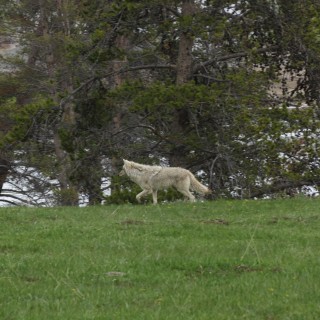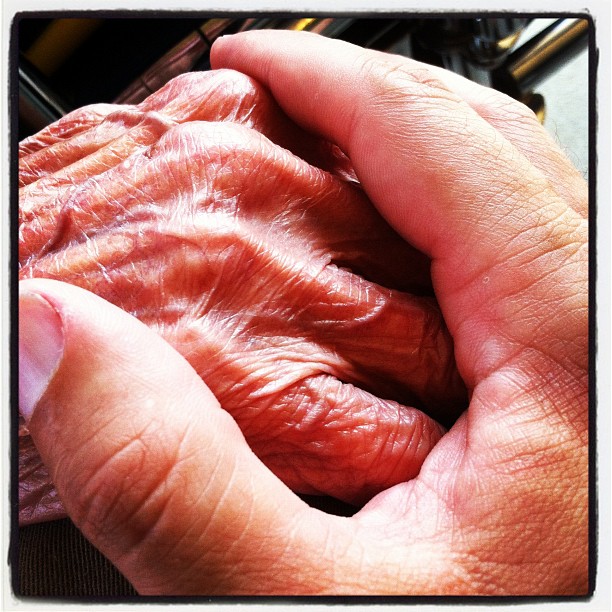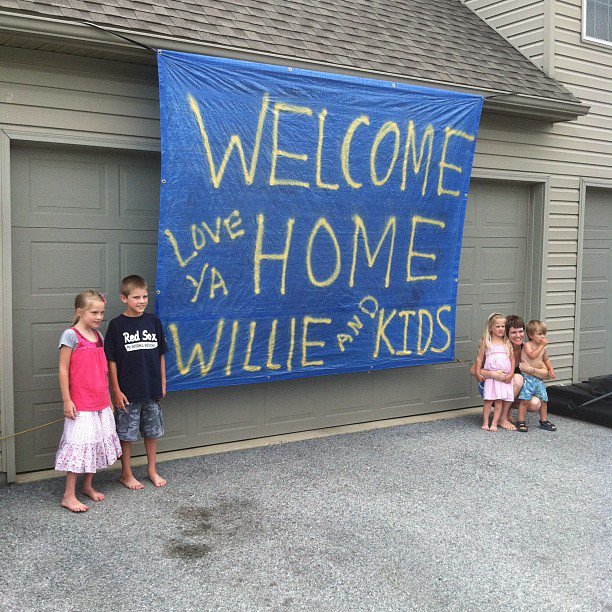Those were the days when I ran down the stone driveway, past the barn where they kept the younger cows, and past the apple tree out of which my neighbor friend had fallen that summer like a piece of over ripe fruit. His mother had broken off an aloe leaf and rubbed the sappy goo inside of it on to his back while I had stared in wonder at such strange medicine.
A red brick church sat peacefully across the road, its steeple staring down at me with stern eyes. Its parking lot was a mother lode of monkey’s gold, and the door was always locked.
I slowed in the church’s parking lot, staring out over the graveyard where we sometimes played hide and seek when the nights were warm and the fireflies drifted like neon-yellow sparks through the humidity. But on those kinds of hot days, the only thing that moved was the air, shimmering and oppressive and hypnotic.
Then into the shade behind the church. I slipped down the dirt bank to where the creek curved up against the trees. Those were the days of innocence for me – I knew so little about how the world worked, so little about the atrocities or the injustices. The muddy water drifted by.
Sometimes my dad walked down there with me carrying a shovel and two fishing rods. In the shade that washed up next to the creek, he dug the shovel into the wet dirt and the ground made a sucking noise as he flipped it over. The squiggling ends of worms frantically waved like flags of surrender. I plucked one of them and methodically pierced it with the hook, then cast it into the water. The bobber floated like hope.
We waited.
* * * * *
This weekend my own kids will draw pictures for me and give me boxes of candy (usually not my favorites, but the candy they most associate with me, which for some strange reason is the Atomic Fireball). I will hop into the pool with them and chase them around the outside of it the way my dad used to chase me. Or I’ll threaten to throw them in while they’re still in their church clothes, and all of it is learned bahavior.
Then on Monday night I’ll mow my father’s lawn, and I’ll think how strange it is that I enjoy it, especially after all of those years when his command to “Go mow the yard” brought so much angst into my soul. I’ll mow the lines straight, not because he is nagging me to, but because after all of these years I appreciate a lawn with straight lines. I’ll use the catcher, not because he tells me to, but because after all of these years I appreciate a freshly mowed lawn free of grass clippings.
These are the things that rise through the murky water of my mind, three days before Father’s Day.



